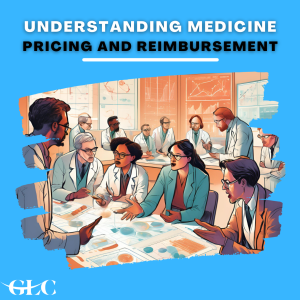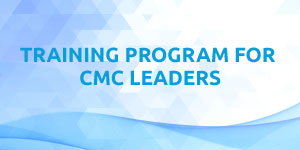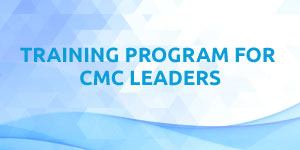Free knowledge to monitor the world of events. Have a look at our must read Blogs on Pharma, Finance, HR, Health and Cross Industry.
Understanding Medicine Pricing and Reimbursement
2022-08-16
Pricing medicines balances on a tightrope between cost development and patient access
Medicine pricing and reimbursement are key issues in most global healthcare systems and have a high impact on ensuring patient access to treatments, besides the financial sustainability of health services. The blog post gives an overview of the basic concepts, challenges, and strategies in these areas, focusing on the regulatory framework, international trends, and innovative approaches.

Key Concepts of Medicine Pricing
Pricing medicines balances on a tightrope between cost development and patient access. Governments and healthcare authorities put controls on medicine prices to avoid excessive prices which would compromise the ability of manufacturers to recover their research investment.
Some of the common pricing models are as follows:
- Cost-Based Pricing: The price is determined by adding a profit margin to the production and research costs.
- Value-Based Pricing: Prices reflect the clinical value and health outcomes delivered by the medicine.
- International Reference Pricing: the definition of a benchmark price based on prices in a selection of other countries.
The Role of Reimbursement Policies
Reimbursement means coverage for medicines through a public or private insurer, improving access for patients. Successful reimbursement strategies play an essential role in achieving equity in healthcare and helping sustain health budgets.
The key reimbursement mechanisms include:
- Direct Reimbursement: Full or partial payment for medications by insurers.
- Co-Payments: Patients contribute a portion of the medication cost.
- Pooled Procurement: Collaborative purchasing agreements among countries to reduce costs.
European Approaches to Medicine Pricing and Reimbursement
European countries use a host of strategies for finding the right balance between access and cost control in their pharmaceutical policies. While approaches exhibited by different countries vary, some common elements include:
- Health Technology Assessments (HTA): Evaluating the cost-effectiveness of a drug before approval.
- Generics and Biosimilars: Incentivizing the use of lower-priced alternatives to branded drugs.
Challenges often arise due to variations in health budgets and economic conditions among countries, leading to differing levels of access.
Role of Generics and Biosimilars
Generics and biosimilars have an important role in containing healthcare costs once the patent expires. Promotion of their use includes:
- Automatic substitution of generics.
- Encouraging prescriptions by the generic name.
- Incentives for physicians and pharmacies to recommend lower-cost alternatives.
WHO Guidelines on Pricing and Reimbursement
The WHO provides certain guiding recommendations on effective pricing and reimbursement mechanisms based on:
- Value-Based Pricing: Prices aligned with health outcomes.
- International Reference Pricing: Price benchmarking according to globally accepted standards.
- Pooled Procurement: Collaborative buying strategies to enhance negotiating power.
- Promotion of Generics and Biosimilars: Incentivizing cost-effective options for treatment.
Addressing High-Cost Medicines with Innovative Agreements
Innovative contracting models have been critical in managing the cost of high-priced medicines, especially new therapies. Some common models include:
- Outcome-Based Agreements: Payment keyed to the treatment outcome.
- Financial-Based Contracts: Discounts or rebates depending on sales volumes.
These agreements reduce risks for payers and manufacturers and allow more patients access to costly therapies.
Advanced Therapy Medicinal Products (ATMPs): A Complex Case
ATMPs, including gene and cell therapies, have special pricing challenges due to the high development cost and transformational health impact.
Key considerations include:
- Long-Term Benefits: ATMPs may provide lifelong benefits but come with high upfront costs.
- Uncertainty in Outcomes: Limited long-term data can complicate pricing decisions.
Countries like Germany and Italy have explored outcome-based contracts to manage ATMP reimbursement.
Global Perspectives on Medicine Pricing and Reimbursement
United States:
- Market-driven pricing with minimal government regulation.
- High prices due to limited price negotiation mechanisms.
Latin America:
- Colombia, Mexico, and Chile use international reference pricing and essential medicines lists to control costs.
- Pooled procurement strategies are increasingly being used to gain bargaining power.
Conclusion
Medicine pricing and reimbursement are central to achieving a balance between innovation, affordability, and access. Although different models exist around the world, strategies such as promoting generics, value-based pricing, and innovative contracting will help create sustainable healthcare systems. Policymakers, healthcare providers, and manufacturers must work in concert if there is to be fair pricing of medicines while ensuring timely and affordable care for patients.
Join our exclusive Pricing and Reimbursement of Medicines Masterclass to gain expert insights on global pricing models, reimbursement strategies, and innovative contracting approaches.
By Shara Najimudeen, Digital Marketing Executive, GLC Europe, Colombo Office, Sri Lanka.
Get a feel for our events

Training Program for CMC Leaders - EU edition
14th September 2026 - 09th April 2027
Rich with practical insights and real-world applications
learn more >>
Training Program for CMC Leaders - US edition
14th September 2026 - 09th April 2027
Rich with practical insights and real-world applications
learn more >>
Advanced Stability Testing of Pharmaceuticals MasterClass - US edition
24-27 February, 2026
Increase the likelihood of studies receiving regulatory approval
learn more >>












